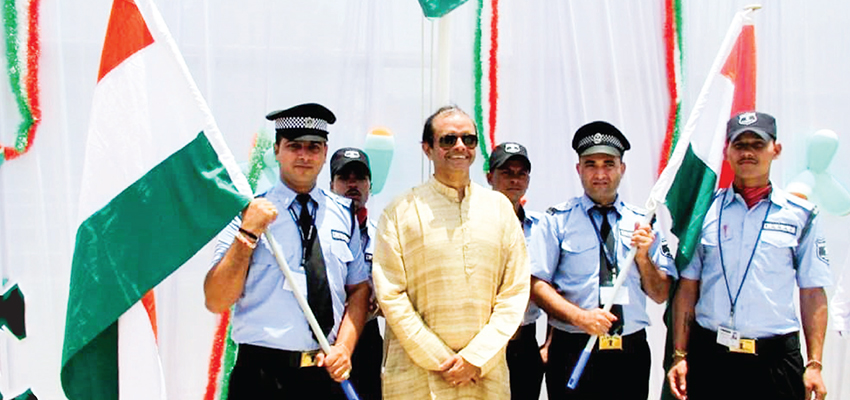Every Indian deserves to be understood by countrymen who are at a higher stratum – socially, financially and emotionally, and it is our collective responsibility to ensure inclusion
An interesting Independence Day weekend presented a kaleidoscope of views on the idea of India and what we could and should expect in the remaining years of this decade and the march towards India@100. The vitriolic barbs and counterparbs hurled by senior politicians at each other in Parliament served to raise concerns on where we as a nation are heading.
However, a wonderful “debate” featuring two of India’s most cultured Parliamentarians, Shashi Tharoor and Jayant Sinha, moderated by my favourite journalist Rajdeep Sardesai restored my faith. It gave hope that, as a nation can indeed paint a picture of India on the canvas of a changing world that will give thinking and caring citizens some cause for relief and later happiness.
The debate turned out to be an evening where the two gentlemen ended up agreeing more than disagreeing with each other. Jayant, bringing together more of his Mckinsey Omidyar training than his political pedigree to his talk, spoke of an India that needs sustainable growth and mentioned key pillars on which both these objectives could rest. Shashi managed to cut to the chase immediately, arguing that without inclusion and each of our 1.4 billion brethren believing they had equal opportunities, there could be no successful growth in the country. Where they both agreed was that the Constitution guaranteed these rights and opportunities to every citizen of the country. The lingering doubt of course was whether every individual in public life truly believed in and practiced inclusion.
It was this concern that also led me to write my first novel featuring the search for true purpose by a slum dweller Abhay, who finds his agency in one of our Pune Skills Lighthouses and a well-trained marketing expert in the city of Mumbai, Sharon. As Sharon and Abhay meet each other by accident and are drawn into each other’s thinking and lives, they stumble through real and perceived barriers between their social classes and the expectations of different segments of society, and finally find success and true purpose. And, it struck me that because of the “othering” that so many Indians are subjected to because of class, caste and community—our successful previous book “India’s Pathways to Success” could become a reality only if every Abhay and Sharon felt included in one or many of those pathways. This is a topic that my keynote at the IIT alumni’s first European summit in Netherlands, will dwell on later this year.
Previous articles in this column have spoken about the tragedy of our current environment where “othering” or labelling some parts of humanity as “others” has become a way of life. While in some parts of the Western world, othering has led to decades of racial inequity, in India we are seeing inequities amongst social classes, caste, communities and even gender, which have led to deep fissures in society.
There is a power dynamic involved in othering that we have to pay deep attention to. It emerges from a tendency to view many others as “not like us” and a deep-rooted sense of superiority in who we are and what we represent. Even words like charity and inclusion are limiting in the sense that they start from an assumed position of superiority of the person who wants to be good to the other. We need to free ourselves from this explicit or inherent tendency towards othering, which is so embedded in our thinking and language that it becomes a limitation to what we can accomplish in a social context.
My own life, which features in some explicit and implicit references in my novel “A Passage through Life”, starting in the village of Tatisilwai in Bihar and moving through Mumbai, Delhi, UK, US and now Pune. It has enabled me to see “othering” up close – in community conflicts, patriarchal treatment of women and now in Pune. Many well-to-do folks have not made any attempt to really understand the aspirations and citizenship model of the dwellers of over 600 slum communities in just the two municipal corporations of the city. Every Indian deserves to be understood by countrymen who are at a higher stratum – socially, financially and emotionally, and it is our collective responsibility to ensure inclusion.
From the ramparts of the Red Fort on Independence Day, Prime Minister Narendra Modi, made a passionate case for India being one of the emerging leaders in the changing geo-political climate and the leadership voice of the “Global South”. Calling out Demography, Democracy and Diversity, as the three enablers of India’s success, he spoke of the need to eradicate corruption and dynasties from the fabric of the country. At this point, our country has leaders from political families like the Nehru-Gandhis, the Yadavs, the Scindias and the Sinhas on both sides of the political spectrum and corruption is a weapon that is being wielded to oust governments of both parties.
We all respect our Prime Minister as a strong and sincere leader who has truly done a lot to position India on the world stage. Can we expect all our leaders to build the India of our dreams in a spirit of collaboration please? Or is that too much to hope for as the election season approaches?
